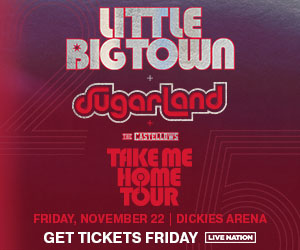Some years ago, when the team was in training camp in Austin, I sat in Jones’ dorm room and was mesmerized by a man whom some had called a hillbilly. The Arkansas oilman was able to break down the profitability of his team by record: A 7-9 season would bring in X amount, 8-8 a little more, and so on. So when Jones started pushing his new stadium plan in Arlington, I knew the Cowboys owner was salivating over the prospects of a huge cash windfall. And it wasn’t about the $325 million in sales tax money he needed from voters. It was the new revenues he’d be able to extract from his fan base.
Well, the stadium’s not finished yet, but that bill for fans is already coming due. The Cowboys announced last week that anyone wanting to purchase season tickets for 2009 and beyond will have to buy a personal seat license (PSL). This means you have to fork over some big bucks just for the right to fork over more big bucks for a seat at the game.
And the numbers are staggering. The PSLs will cover roughly 50,000 of the 80,000 seats and will cost between $16,000 and $50,000. At minimum, that puts $1 billion in Jerry’s pocket. Ticket prices have not been set, but a single-game premium club seat will likely go for $340.
Some would argue that this is fair market economics, and if the fans are willing to empty their pockets to watch their football team, then so be it. But the problem here is that Jones knew he would be getting a huge amount of money from this deal plus a big rise in the value of the franchise, and he still played the game with Arlington voters, whining about needing their money to build his stadium.
The stadium will likely cost around $1 billion, with Jones’ share about $650 million to $700 million. But Arlington also allowed Jones to put a 10 percent tax on tickets and parking to help pay off his share of stadium costs. That works out to about $240 million over 30 years. The National Football League also floated the Cowboys a $100 million no-interest loan.
Then there are the luxury suites. The new stadium will have 200 suites that will sell for $100,000 a year. Over 20 years, the suites will bring in about $400 million. By the way, the suite price doesn’t include tickets. So before Jones sells even one ticket, taxes and PSLs and suites will bring him about $2 billion. Forbes Magazine estimated that the Cowboys now make about $50 million a year in profit and said that figure is likely to increase greatly at the new stadium with much higher ticket prices and concessions and parking.
The problem here is not Jones getting all he can. Smart business people do that. The problem was what Arlington officials told voters. The possibility of PSLs was barely mentioned, the tax deal on parking and tickets was never questioned, and a very slanted economic development study was always trotted out as the reason to bring the Cowboys to Arlington.
The facts are that Jerry Jones could have afforded to build this stadium himself and still make a huge profit, but no one at Arlington city hall dared to bring that up. The realities of the NFL are that teams cover their salaries and expenses on the rich TV contracts, and everything else they bring in – ticket sales, corporate sponsorships, PSLs, expensive beer, and parking – is all profit.
Arlington likes to point out now that the city’s spending on the stadium is capped and that future events – like the 2011 Super Bowl, the college basketball Final Four, maybe political conventions – will more than repay the investment. But the reality is that Jones will make all sorts of money off those events as well, and he could have done so without the public investment.
If Cowboy fans want to pony up about $200,000 per person over the next 20 years to watch their team, that’s their choice. But cities must come to grips with the question of taking money out of citizens’ pockets and passing it on to make one rich guy much richer. Such policies do not pass the smell test.











